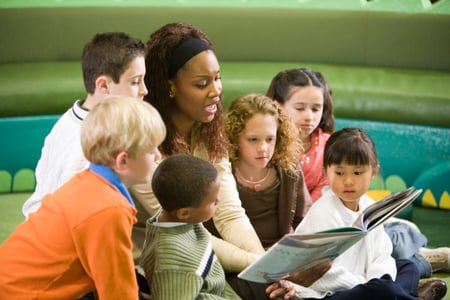
DEAR MISS MATTERS:
I was reading through my CLASS manual, and I came upon something I never noticed before. Under the dimension Concept Development, "evaluation" is one of the markers of analysis and reasoning. But when I read the range description, this behavioral marker is referred to as "evaluation/summarizing." The manual gives this example: "The teacher asks a student to summarize what a story was about."
Here’s my question—isn't summarizing a story just a type of recall? If it's not, what is the difference between summarizing a story and asking a child to recall what happened in a story? Thanks, as always, for your insights and expertise.
GENTLE READER:
How very diligent of you to read your manual on a regular basis to brush up on your CLASS coding skills!
Concept Development can certainly be a tricky dimension. No doubt, the most important thing to remember is that Concept Development interactions promote higher-order thinking. Miss Matters could imagine the “summarizing” scenario you mentioned playing out in two different ways—one in which higher-order thinking is promoted and one in which it is not.
Far from encouraging rote recall, open-ended questions about stories help children analyze and interpret what they've read.
Let’s take a look at a dark and dreary world where Concept Development is lacking. The teacher asks targeted and closed-ended questions about the story to help the children remember specific pieces of it. She might ask, “Where did the beaver build his house?” or “What did the pumpkin turn into at night?” While these questions help the children recall what happened in the story, they do not allow the children to engage in any higher-order thinking, and thus would not contribute to the Concept Development score.
Alternatively, in a CLASS observer’s paradise, the teacher might ask open-ended questions that require analytical thinking on the part of the children, such as, “What was this story about?” and “What was the author trying to tell us?” These questions provide the children with an opportunity to reflect back on the story they read, decipher which pieces of the story are important and pull them together, and then evaluate the meaning. Of course, the effectiveness of these questions and the interactions that ensue will depend, as always, on their frequency, duration, and depth as well as the response of the children.
Happy coding!

